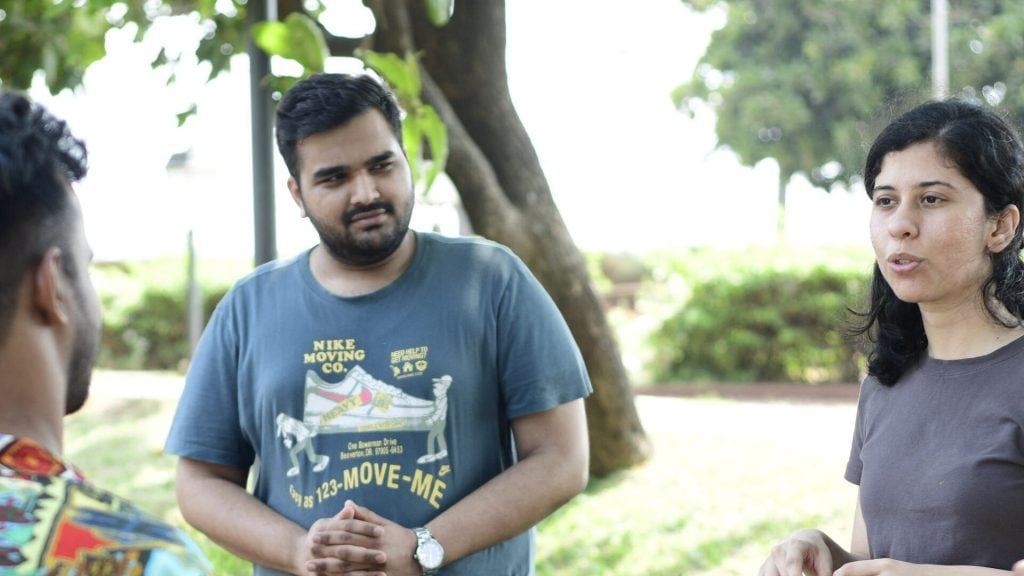
The Rise Up series is a column that explores how the process of seeking justice can be a transformative tool to combat gender based crimes, while also recognising the survivor client’s agency, lived reality and desire for justice. The column explores the ways in which practitioners working or hoping to work in the field can adopt a gender sensitive lens in their work.
The law has served both as a tool by which rights are vindicated and as a tool by which rights are abolished. Laws are no longer looked as stone-cold, irreversible dictums of the state but are evaluated on the yardstick of whether they are in line with basic constitutional values of fairness, equity and justice. Slowly, but surely, lawyers have started to come to courts not just as representatives of individual clients but on behalf of entire communities who were disadvantaged and discriminated against. Through strategic litigation, advocates around the world began using the law as a tool by itself to highlight its shortcomings while simultaneously pressurising the state to invest in and follow-up with schemes directed towards alleviating the concerns of the underrepresented and marginalized communities.
Even though lawyers have, for a long time, represented various communities in a court of law, there was always a dissonance between the two given that despite the community’s lived realities, they had little to no power in a court of law when compared to a lawyer who often did not belonging to the community but became the face of the struggles that the community was put through. Movement lawyering seeks to address this dissonance while focusing on redirecting the attention of the courts to the lived realities and agency of the community. Movement law is rooted in the idea that real transformation comes from aiding the people directly affected by allowing them more power and autonomy in their own outcomes.
What is movement lawyering?
At the heart of it, movement lawyering is a type of lawyering which is focused on supporting, advancing and strengthening social movements which focus on the growth of collective power. It is an understanding of the fact that even in formal legal settings, both lawyers and members of the community bring to the table individual and indispensable experiences which have to be synthesized. While lawyers have expert knowledge of the law and the workings of the legal procedure, social activists have the wealth of experience, having interacted with the fallacies of the system they are fighting against.
Even though the case is represented in the court by the lawyer, the lawyer, in movement lawyering, does not have the final say on the matter. Movement lawyering necessarily requires consistent, honest and open communication between community members and the lawyers. A lawyer’s role is largely restricted to explaining the legal position, the procedure that can be adopted and possible counter-arguments that may be presented. Despite playing this strict role, lawyers can continue holding a key-position acting as an intermediary between the legal system and the community. Movements gain momentum in order to pressurise the government to respond and accommodate the concerns of their citizens. When the governments turn a deaf year, the judiciary can step in to give the movement more impetus if the tool of movement lawyering is used efficiently and convincingly. It is the obligation of a movement lawyer to leverage their skills in order to build capacity within the community and develop the power to change the material conditions within which the most vulnerable live.
Movement Lawyering in Practice
In practice, cases of movement lawyering are dedicated to a particular cause which are represented in court through a close collaboration between community leaders and lawyers. In this respect, lawyers merely hold the position of communicating the concerns of the community to the court while buttressing them with legal viewpoints. Over the years, instances of movement or cause lawyering have played an integral role in several civil rights movements starting from the famous case of Brown v. Board of Education. In this case, the lawyers were not seen as the central driving forces of the movement but just as persons who were tasked with equipping the activists with ways by which they could resist the power structures while simultaneously affirming their rights to freedom and equality.
In India too, movement lawyering has posed as a useful tool in receiving favourable judgments thereby providing great momentum to causes. For example, the famous Vishaka Guidelines which dealt with sexual harassment at the workplace was a result of persistent and widespread activism led by organizations working with a survivor of gang rape which took place in the course of her employment. Eventually, this judgment led to the creation of a special legislation focused on avoiding and providing redressal to survivors of sexual harassment at the workplace. Another example of effective and meaningful collaboration between lawyers and activists was the case of Baxi v. State or Uttar Pradesh which was initiated through the collaboration between Lotika Sarkar, a grassroots activist and lawyer who then worked with Upendra Baxi to design strong arguments against the inhuman treatment of women prisoners who were convicted of engaging in unlawful sex work. Recently, the landmark Section 377 judgment is also evidence of the strength of movement lawyering. The importance of working not merely for the community but within the community and led by the community also comes shining through when one listens to the experiences of a few advocates who led the case.
Movement lawyering seeks to not only represent communities in court halls but also build a relationship of trust and mutual respect between the legal fraternity and activists who although seem to be disjoint from each other, possess immense potential to complement and strengthen each other.
Uttanshi Agarwal is the Senior Program Officer at the FemJustice Legal Center, One Future Collective.